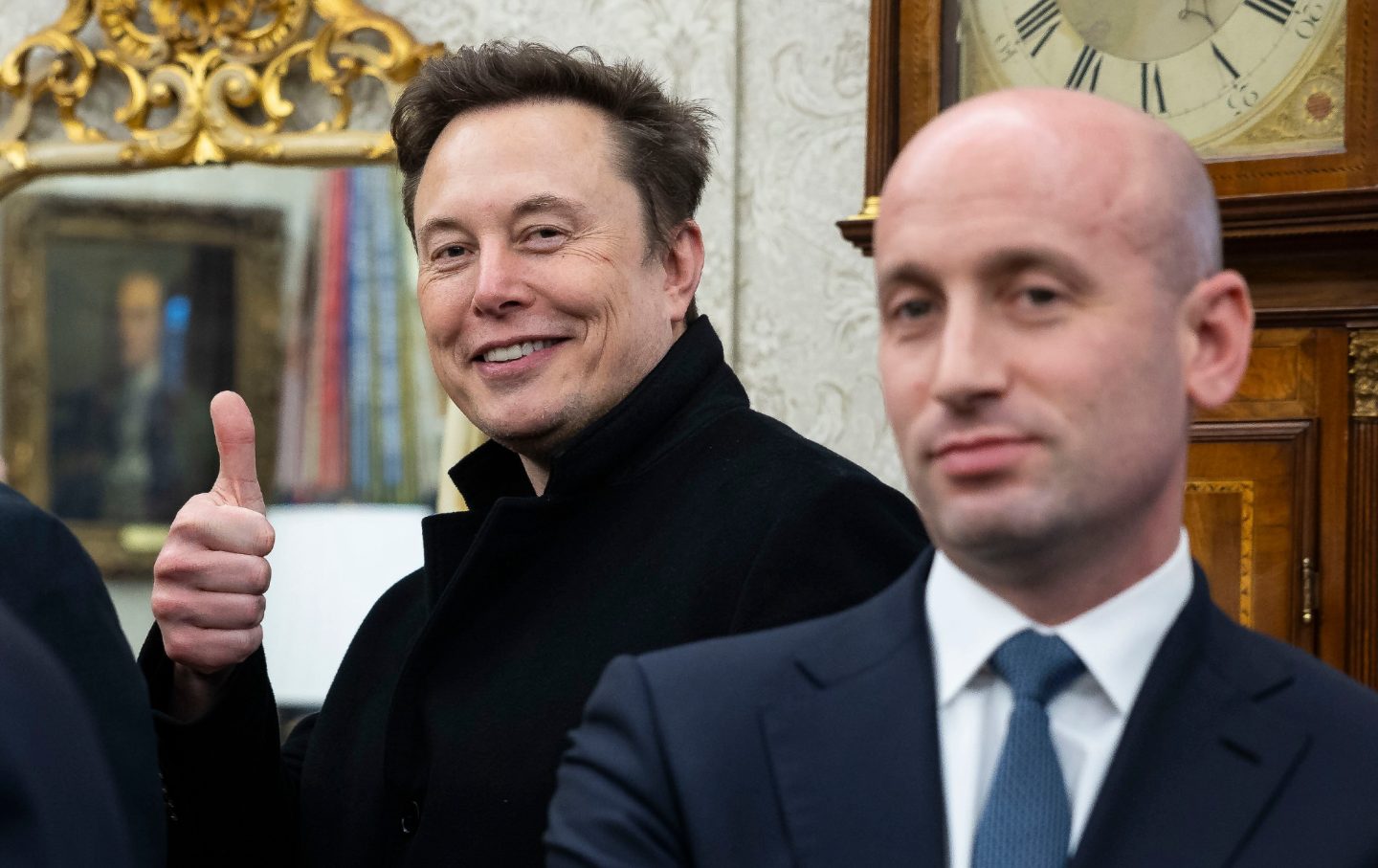
In philosophy, the Nietzschean Übermensch frees himself from the pedestrian bounds of humanity to become a superior being that can rule us mere mortals. Yet, in stark contrast to this ideal, the men who fancy themselves as such—currently at the helm of both the U.S. government and much of the world—are nothing short of pathetic. These self-proclaimed titans of industry and politics, who hold sway over our destinies, are deeply flawed individuals, and their insecurities lay bare the truth of their inadequacy.
We are living through a golden age of impotence masquerading as power, where individuals like Stephen Miller and Elon Musk strut as if they are formidable forces while consistently revealing their own fragile egos. This spectacle has been particularly evident in the aftermath of Charlie Kirk’s assassination, where the right-wing media’s bloodlust for revenge against anyone who dared to express a nuanced opinion on Kirk’s legacy became painfully clear. The very same conservatives who claim to champion free speech morphed into a mob, demanding the firing of educators, journalists, and even comedians for failing to adequately mourn.
The absurdity peaked when Jimmy Kimmel was pulled from the air indefinitely for his comments on Kirk’s death. This is a classic example of how the powerful, in their desperate attempts to maintain control, reveal their cowardice. Instead of engaging in meaningful dialogue, they resort to intimidation and silencing dissent.
Even figures like Donald Trump, who revel in portraying themselves as winners, cannot escape their own loser mentality. Trump’s lamentation over Kimmel’s return to television, where he whined about ABC’s ratings, is a striking illustration of the insecurity that plagues this ruling class. These individuals, despite their wealth and influence, are not the icons they wish to portray; they are merely a collection of insecure actors desperately clinging to power.
To better understand this phenomenon, we must look at the archetypes of losers embodied by Stephen Miller and Elon Musk. Miller, the architect of Trump’s draconian immigration policies, once publicly mocked janitors during his high school years. This bullying behavior, indicative of a deep-seated insecurity, has only evolved into a broader campaign of demonization against the vulnerable. His recent eulogy for Kirk, echoing the rhetoric of historical tyrants, underscores his desperation for validation, despite his power.
Equally revealing is Musk’s failure to craft an original response to Kirk’s death. His remarks, lifted directly from Miller’s playbook, highlight a troubling trend among those in power: a lack of independent thought and a tendency to feed off one another’s insecurities. Musk’s public persona is a cringeworthy spectacle—an attempt to cultivate a cool image while engaging in a futile struggle for relevance. His ownership of Twitter has only exacerbated this, as he dismantles a once-revered platform in a bid for personal validation.
Musk’s actions serve as a microcosm of a larger trend: the ruling class’s disconnection from reality. Their obsession with power blinds them to the fundamental truth that genuine strength comes from community and empathy, not from wealth or status. The descent into crassness is evident in Musk’s attempts to garner attention through increasingly absurd tweets, showcasing a desperate need for affirmation. His cringeworthy attempts to align himself with the masses fall flat, revealing a profound disconnect from the very people he seeks to influence.
What is particularly disturbing is that these so-called leaders are not merely individuals acting out of personal inadequacy; they are manifestations of a systemic issue that allows such losers to wield power unchecked. They control the Supreme Court, they have legalized government corruption, and they continuously erode civil rights, all while maintaining a facade of superiority. This systemic inequity perpetuates their dominance, allowing them to operate without accountability.
As they continue to flex their muscles, it becomes painfully clear that their so-called victories are hollow. They may impose their will upon the populace, but they do so knowing they lack genuine legitimacy. Their tactics reveal an underlying fear that they are merely holding onto power, not winning hearts and minds.
The conservative apparatus’s reaction to Kirk’s death illustrates this perfectly. Rather than engage in a meaningful discussion about his legacy, they resort to intimidation, eager to silence dissenting voices in a desperate bid to assert control. They may try to project strength, but their actions betray them as nothing more than insecure bullies.
In the end, the truth remains: this ruling class of losers is not invincible. Their power is underpinned by a fragile ego, and their attempts to instill fear in others are merely a cover for their own insecurities. It is a precarious position to be in—one that ultimately limits their own influence and exposes them as the weak, cowardly figures they truly are. They may dominate the landscape, but they will never embody the greatness they so desperately seek to project.
This article highlights the importance of Class of Cowards.


